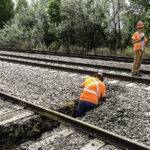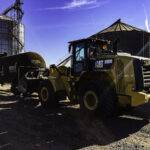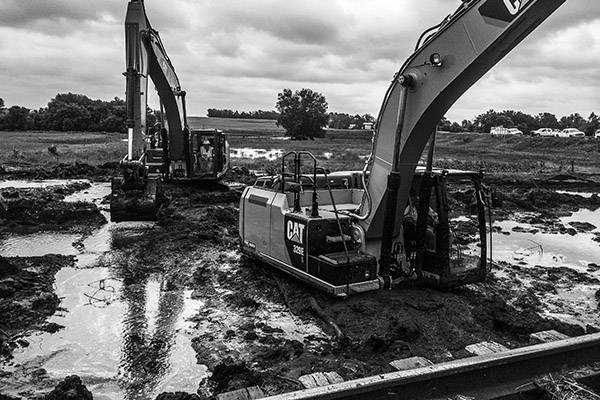
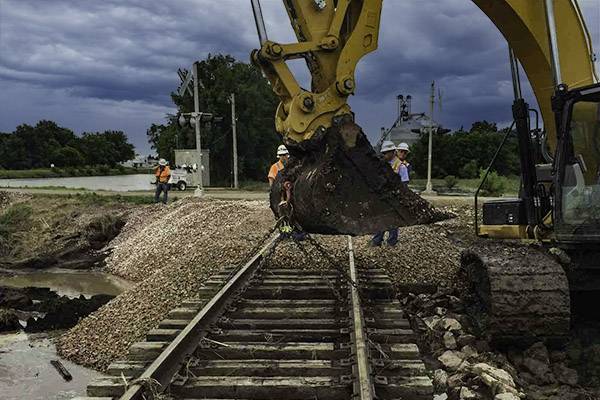
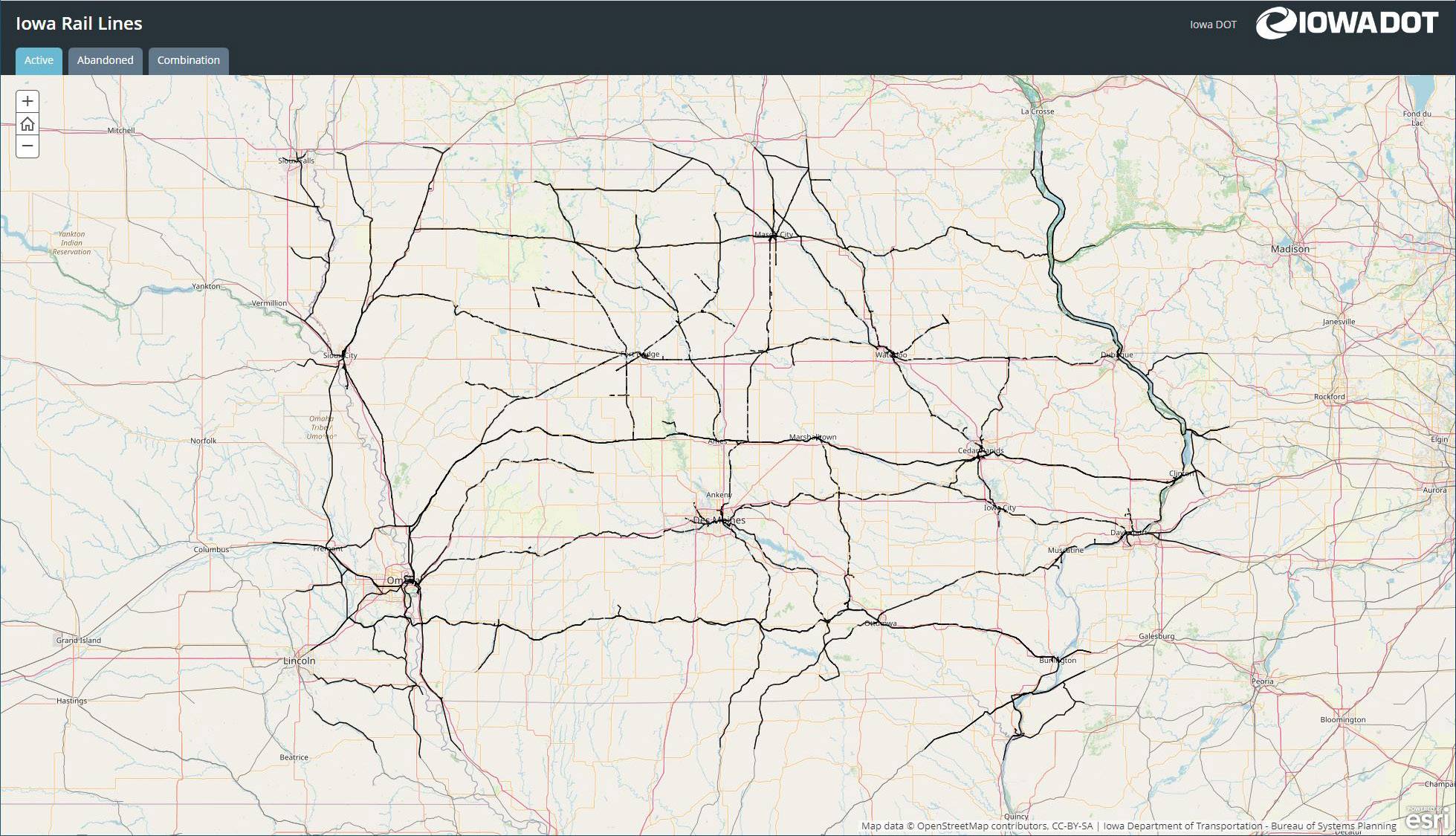
Construction railroad services involve the planning, installation, and maintenance of railway infrastructure for construction purposes. These services cater to the specific needs of construction projects that require temporary rail lines, such as large-scale infrastructure projects or transportation of heavy materials. Construction railroad services include surveying, designing, and constructing rail tracks, switches, crossings, and associated infrastructure. They also involve the provision of specialized equipment like construction trains, locomotives, and wagons. Additionally, these services may include track maintenance, repair, and removal after the completion of the construction project. Construction railroad services enable efficient transportation of materials, equipment, and personnel, optimizing project timelines and logistics.
Fenton Construction supports the Iowa DOT’s Office of Rail Transportation which encourages and assists with the development and maintenance of a safe, efficient and economical railroad transportation system. Toward that end, the office administers programs that:
– Enhance safe track conditions through routine track inspections.
– Advocate for policies and practices that benefit the rail transportation system.
– Promote the rail transportation system as a component of a balanced, statewide transportation system.
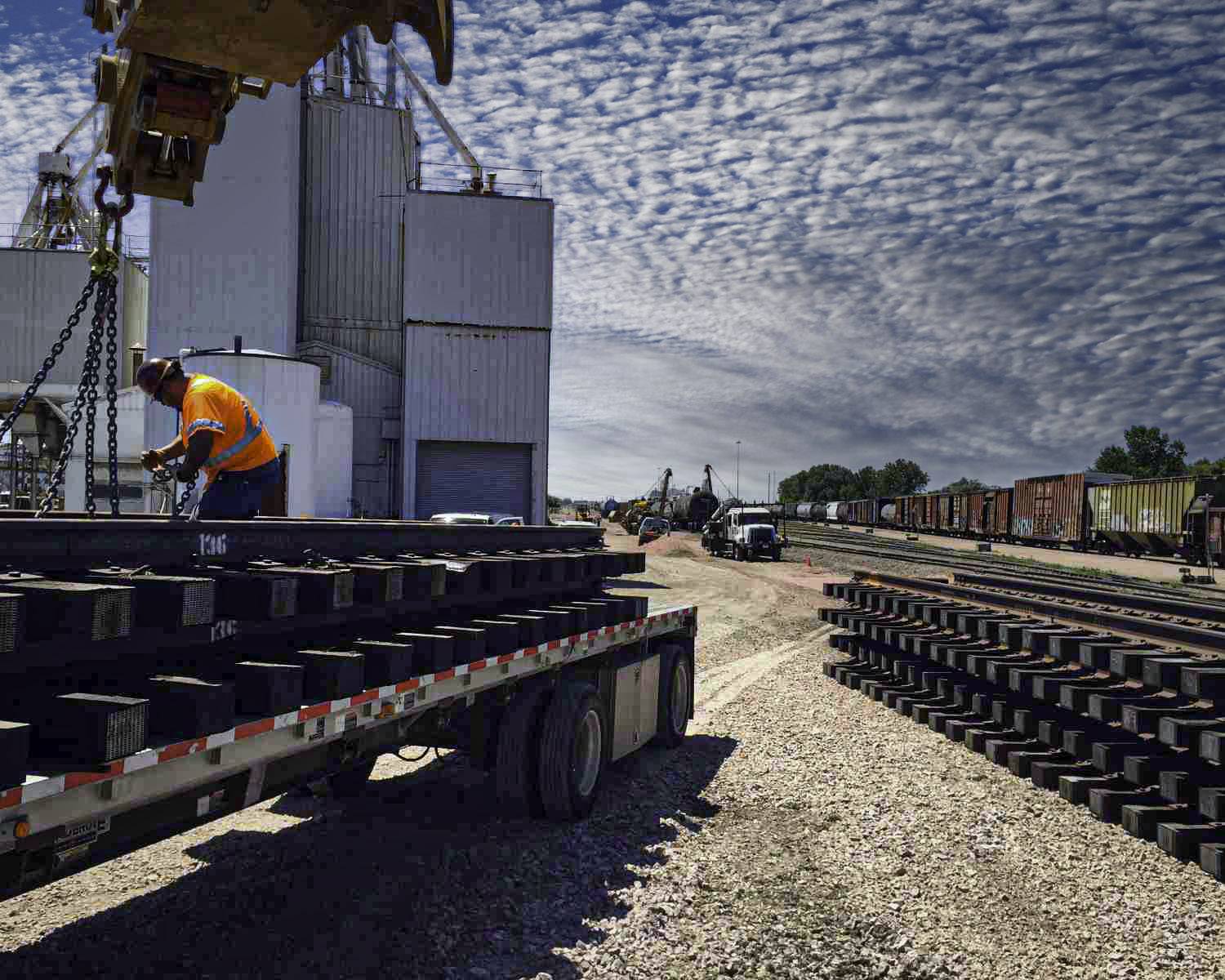
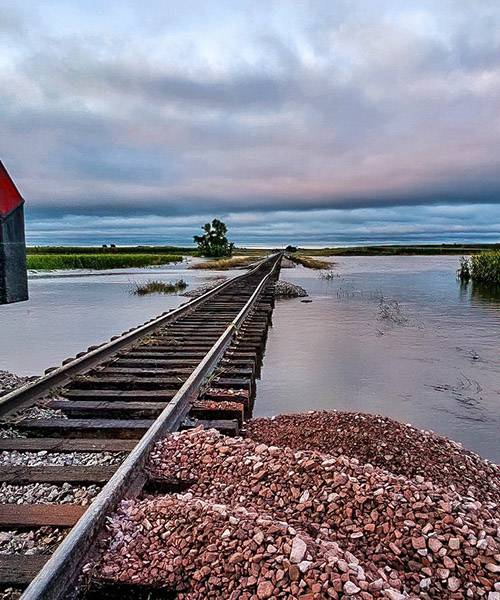
Rail services contribute to reducing shipping costs, ensuring competitive prices for consumers. As a vital component of the supply chain, they facilitate the movement of raw materials and finished products, fostering industrial development. In summary, our railroad services form the backbone of a resilient, sustainable, and cost-effective transportation network, vital for the prosperity of businesses and nations alike.
Our Nation's Rail System
Our railroad services are an essential lifeline for the efficient transportation of goods, underpinning economic growth and global connectivity. Railways offer several crucial advantages: they are environmentally sustainable, reducing carbon emissions compared to road transport; they can handle massive cargo volumes, alleviating congestion on highways; and they provide reliability, even in adverse weather conditions.


